Is Culinary School Worth It?
by Carlo | 18 Mar, 2021
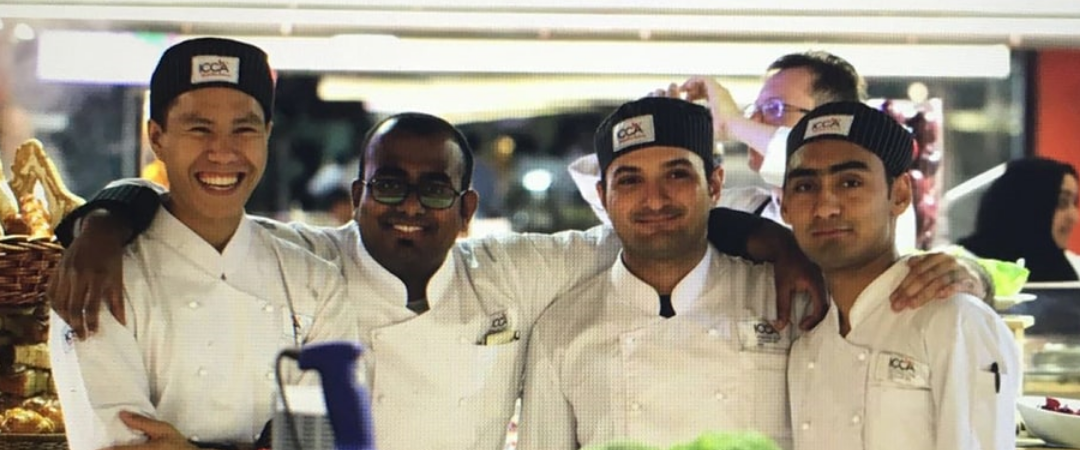
A few months ago, I received a message from the International Centre for Culinary Arts – Dubai (ICCA), informing me that they posted my video testimonial on their Facebook page and blog. Having graduated four years ago, you can imagine my surprise upon hearing this news. Nevertheless, this got me thinking about my culinary journey so far and why I decided to acquire a diploma in Cookery and Patisserie, to begin with.
Prior to being a chef and solopreneur, I was an engineer for five years with Toyota Motor Philippines. I enjoyed my work a lot and for a while, I thought my career was set to this track. One day, my mother, who was an overseas worker, fell ill. She had established a restaurant business in Dubai. With no other relatives around, I wanted to help her in any way that I can. After considerable thought, I uprooted my whole life and flew to Dubai on 2014.

I wore many hats in mom’s business. I had been the driver, waiter, cashier, delivery man, social media marketer, procurement officer, dishwasher, and bookkeeper. To be honest, there were many times I questioned myself if I made the right decision in giving up my career and starting over. But still, I persisted. Although it was out of necessity and my sense of duty to my mother that prompted me to go to Dubai, I discovered my passion for food and that led me to stay.
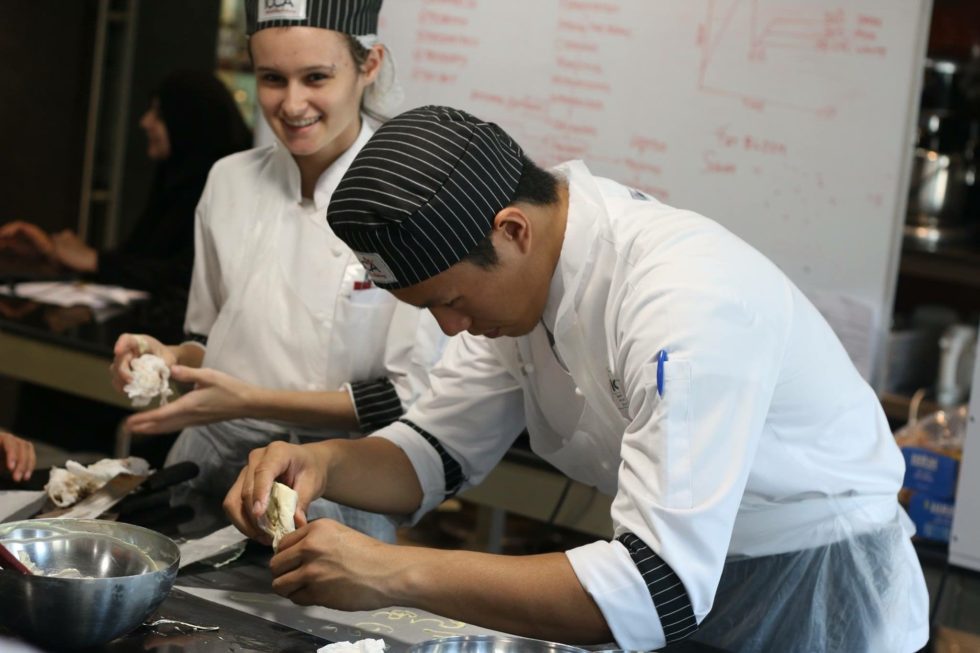
I had no formal education or professional experience in cooking or any hospitality-related field. I was only a recreational cook, inspired by my family’s inherent love for cooking. When I came to join in mom’s business, she became my sole teacher who imparted the knowledge she’d learned over the years and honed through experience. Although I could have continued to learn from her, I couldn’t fight the feeling that I was still lacking somehow. With the older cooks looking up to me as a leader, I felt the urgency to improve myself.
I studied at ICCA in 2016. I didn’t go through the minor subjects you’d expect in a university. My diploma in Cookery and Patisserie was a vocational degree that operates in a lab and lecture system, where you will have hands-on cooking/baking and classroom lectures. The program was an intensive 6-month course that demanded a lot of hard physical work and time. A typical day in school was like a shift at work lasting 10 hours from 7am to 5pm. I was also working full time so right after school, I would report to duty until our shop closes at 1 am.
ICCA has an amazing facility, one of the best in Dubai. I particularly appreciated that they have their own knives and tools for the students to borrow and use. Other culinary schools aren’t as generous. Having these tools provided in school was definitely a good perk considering kitchen tools cost a lot.
Had I continued to learn only from my mom, my expertise would be limited to what she had specialized thus far. In school, I was exposed to different chefs with different specialties and experience. Learning from them definitely broadened my spectrum of ideas, inspiration, and knowledge. In cooking, I learned different techniques like frying, searing, rendering, sauteing, grilling, deboning, filleting, chopping, baking, boiling, etc. In patisserie, I learned all about the different cake mixing methods, cake assembly, bread and yeast raised doughs, rich doughs, classic French pastry, cream fillings, chocolates, etc. These fundamental skills and subjects are all important, like how foundations of a building in construction are or machine language is to computer programming.
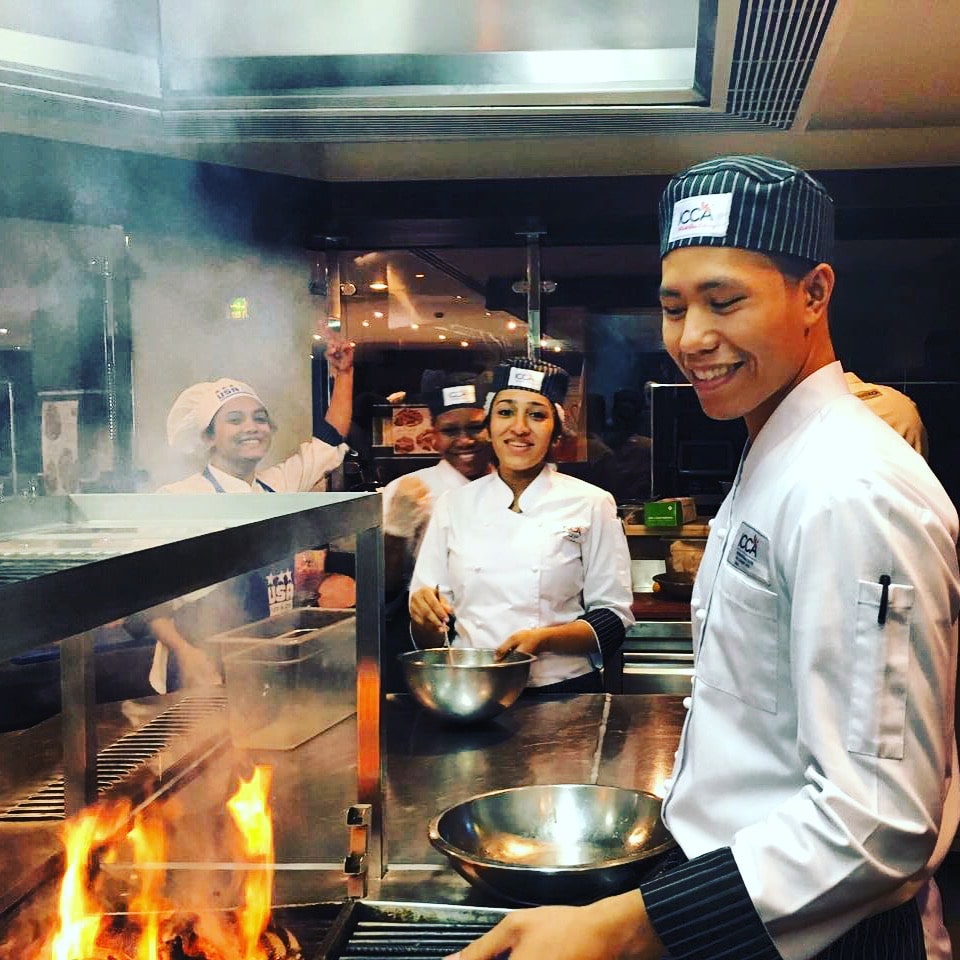
These fundamental skills and knowledge learned in culinary school are not always taught to you when you work in a restaurant or bakery. Most of the time, work that will be assigned to you is very specialized. For instance, a cake decorator will be assembling and decorating cakes and will not have any exposure to any bread production. An artisan pizza chef will not have the specialized skills in modeling that a cake decorator is supposed to have. Similarly, a sushi chef will not be doing any grilling. This is one of the benefits of seeking formal education in cookery or patisserie. You can be taught all the fundamentals and techniques in a short span of time, usually 3 to 6 months. For a person like me who had transitioned from another career, this short course was definitely worthwhile.
In our family business, I’ve worked with many different chefs. In hiring, we don’t discriminate against applicants based on their formal education in cooking. There have been many times when we chose the hardworking one instead of the one with the culinary education. I realized that that decision wasn’t always the right one. The chef that had experience and culinary education required less supervision than the one who did not receive formal education. For a small business like ours, that can save us a lot of time.
I met a lot of people in school. It was interesting to meet so many people from different walks of life. I developed good relationships with my peers, teachers, faculty, and even the cleaners. To this date, I still maintain contact with some of them and we often discuss our experiences thus far. Their perspective has kept me updated with culinary trends, vacancies, and news. In particular, I met Chef Francois, my first cooking mentor aside from mom. He gave me tips and guidance on cooking matters while he was stationed in Dubai. Sadly, he had to leave the country but we still maintain our communication once in a while.
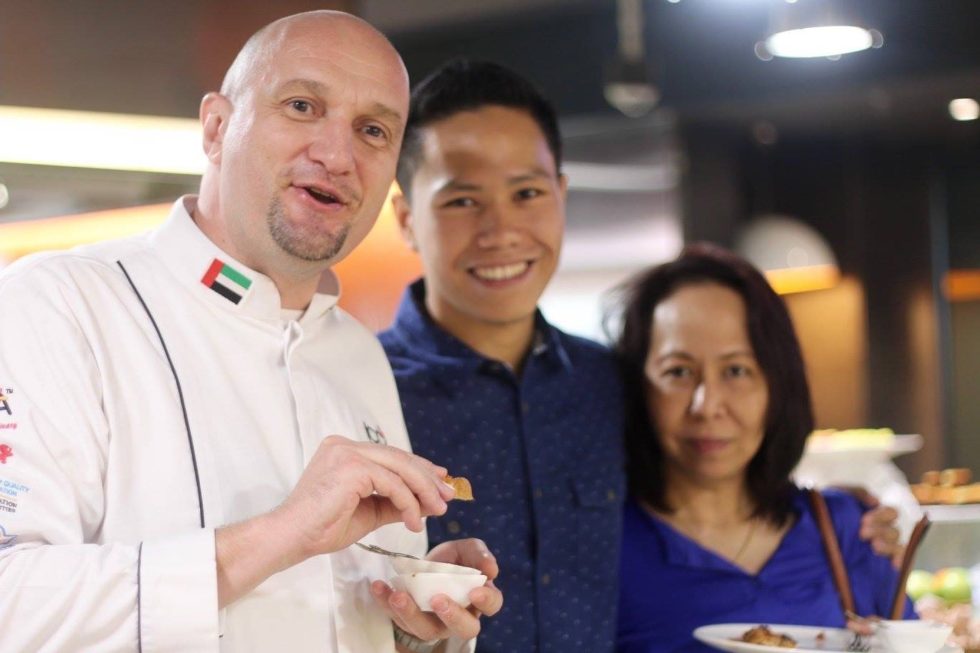
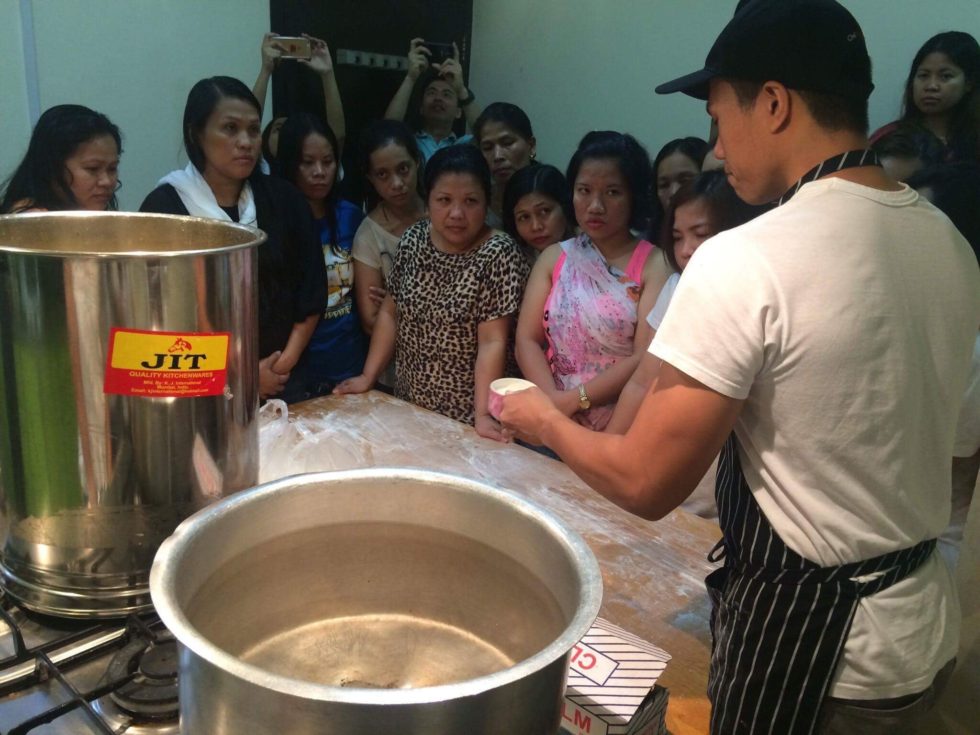
If culinary school had a con, it probably be the cost. Education is never cheap, especially one with a lot of laboratory classes. My tuition fee for cookery and patisserie was 20,000 AED each, totaling to 40,000 AED. A fresh graduate could expect a salary of 1,500 AED to 2,500 AED. This means that if you take one course only and receive 1,500 AED/month, you can breakeven on your educational investment in 13.33 months. A higher salary can shorten this time.
Overall, I believe that culinary school is worth it. In my case, it speed up the transition of my career. Every fundamental skill is taught and repeated until it is drilled in your mind. When you’ve studied the parts in detail, it’s easier to understand and execute complicated recipes. It helps a lot to have teachers who can help you in real-time as you learn difficult techniques and concepts. However, culinary school is not a requirement to learn. There are so many ways to learn if you’re diligent enough. There are many books and online platforms to help in your culinary journey. In this internet age, all you have to do is google search for a dish or an ingredient, and many different recipes will pop up that can give you ideas and further knowledge. This is exactly our aim in redapronph.com. We want to share the ideas, knowledge, mistakes, and techniques that we have learned over the years.
So, is a culinary school worth it? Yes, only if you can afford it.
